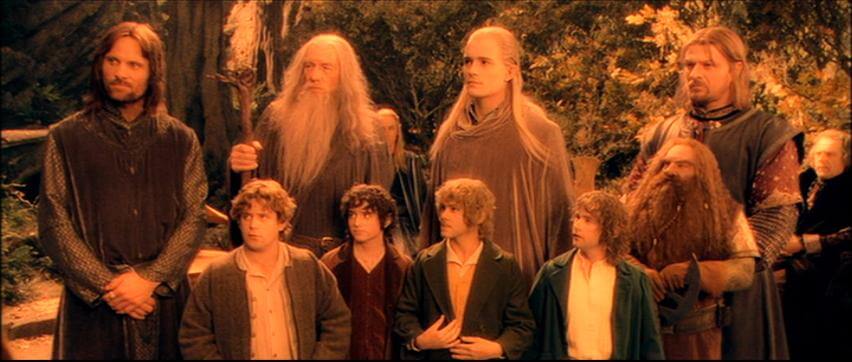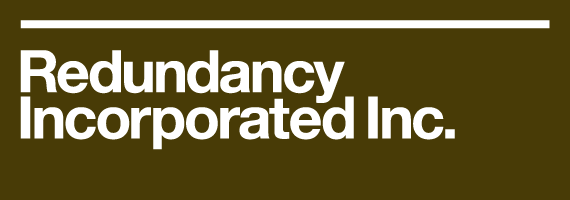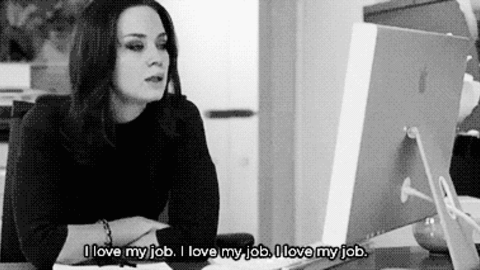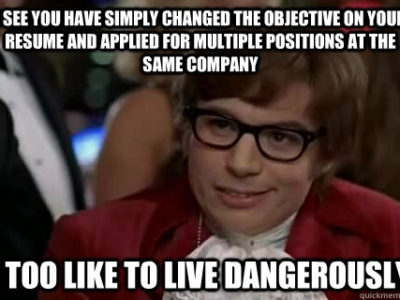Lest you think all resume advice is the same, welcome to the foggy world of resume objectives. Once essential to communicate why you’re perfect for the job, objectives are now considered the garnish of the resume world: kind of pretty, but generally a waste of space. So, why do professionals still use them? In certain circumstances, an objective is the best way to provide that quick, bold statement of purpose. Here’s our list of scenarios where objectives might make or break your application.
Include: When your experience is more motley than the Fellowship of the Ring

(Image courtesy of the Lord of the Rings Wiki)
Resumes are lean, mean, job-getting machines. They zero in on your most pertinent experience and present it in a format that proves you’re a stellar hire. But you’ve been a lifeguard, library desk clerk, research assistant and marketing intern—how do you make all that flow? A specific objective sentence stating what you want and why you’re qualified for it could be the perfect solution.
Discard: When you’ve been working your dream job since age ten.

(Photo courtesy of Thinkstock)
You could do math from your cradle. You took the Calculus SAT II in 9th grade. You captained your campus math team to nationals two years running and you have an annual summer internship at an accounting firm. Your resume already communicates your goals. “Professionals with a proven track record should optimize the space on their resumes,” Lisa Burton, career coordinator for Texas A&M’s Mays Business School, said. Instead, consider a confident summary of qualifications to prelude outstanding work history.
Include: When you’ve recently decided basketweaving is your calling

(Photo by diylol.com)
You were that kid who declared your major at 11:59 PM the last day of sophomore year. At the time, studio art seemed like a great combination of fun and work, but last semester’s criminology gen ed has convinced you to change course. The problem? The only work experience you have is volunteering at the local art gallery. A well-stated objective will take recruiter eyes off the word “art” and focus them onto your still-relevant skills of administration and online research.
Discard: When you said it all, but better, in a cover letter

(Photo courtesy of Redundancy Incorporated Inc.)
Vague objectives are application death knells, but specific objectives can be almost impossible to write. Why whittle it down to one sentence when you can explain how great you are in three paragraphs? If you included a cover letter, you already summarized your achievements in a tantalizing manner, which is what the objective does. Your cake already has icing—which makes your objective nothing more than a sickly-sweet glob of bad decoration frosting.
Include: When you’re more driven than Emily from The Devil Wears Prada

(Photo by giphy)
An objective is a great way to communicate ambition, especially for your first real job. “Employers appreciate students who have a sense of career direction and purpose,” Burton said. An objective that states not only the position you want (editorial assistant) but also the opportunities you seek (acquisitions and publicity) shows that you’re a go-getter with a game plan.
Discard: When you’re printing a stack of resumes for a career fair

(Photo courtesy of Indecent Expos Her)
Vagueness has no place anywhere on your resume, but it’s particularly harmful at the top of the page. If you aren’t applying to a specific position, then leave the objective off. “The most viewed section of a resume is the top 2/3,” Christine Hathaway, senior assistant director of marketing and communications at Northeastern University’s Career Development center, said. “A poorly written objective will do more harm than good, and there are other ways to communicate your goals and skills.” At a career fair, you can make a memorable first impression with your in-person demeanor—no objective required.
Bob Foley of Texas A&M Experiential Education advised students to be precise and concise whether they include objectives or not. Use action words and concrete accomplishments; talk about what you have obtained and accomplished, not what you’re looking for. An objective can serve as the golden thread binding your resume together. But if you’re fighting for space to summarize how great you are, your objective statement should be the first thing to go.
For more resume help, check out:



















